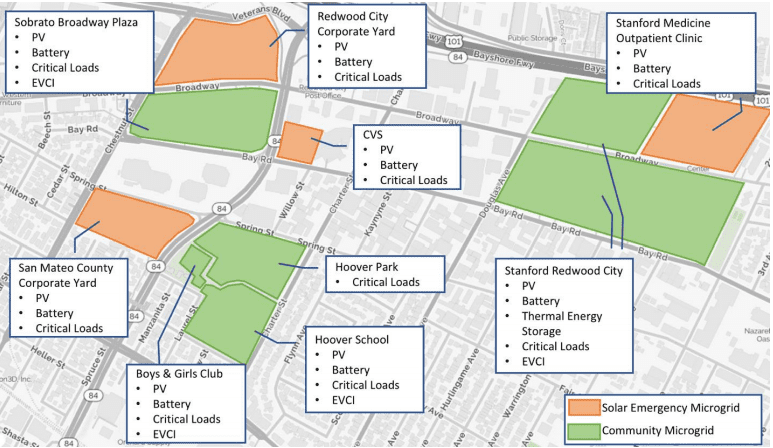Senate Bill 1148: Enabling resilience through Master Metering
This blog post explains why the Clean Coalition is facilitating SB 1148.
Read More

The Peninsula Advanced Energy Community (PAEC) Initiative studied projects that incorporate one or more components of an Advanced Energy Community (AEC) and found dozens of projects worthy of emulation because they overcome economic or policy barriers. Many of the best practices fall under one of these economic tools:
Best policy practices studied include:
Through dozens of PAEC studies, the team uncovered key findings about where to focus attention when developing AECs. The highlights fall into three areas: economic, policy, and technical.
Read the PAEC Master Case Study for the full findings, and see the Master Case Study Overview for a quick view of the Initiative’s major findings.
For details on the Clean Coalition’s design for an AEC in a disadvantaged community, see the PAEC Master Community Design.
The latest in clean local energy
Learn about our innovative projects and initiatives on our blog, and see what others are reporting about our important work.
This blog post explains why the Clean Coalition is facilitating SB 1148.
Read MoreIn this Legislative Roundup written by the Clean Coalition, we lay out the key DER energy-related bills currently making their way through the California legislature this year.
Read MoreA letter signed by 18 members of Congress from California, cites the Clean Coalition's work while expressing concern about the Income Graduated Fixed Charge proceeding at the CPUC.
Read article